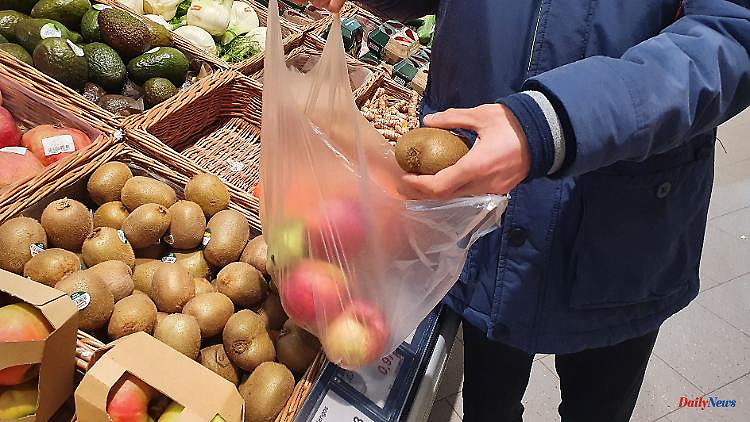Life in Germany is now so expensive that low-income households forgo buying some food in order to be able to afford energy. For the time being, there is no relief in sight. According to an Ifo survey, retailers want to continue raising prices.
In the coming months, Germans will have to adjust to further increases in food prices. Almost every retailer is planning higher prices, according to a survey by the Ifo Institute. The corresponding barometer for retailers' price expectations for food and beverages was 98.9 points in June. The points in the Ifo price expectations indicate what percentage of companies want to increase their prices. According to the survey, this is also the case for a majority in the other retail sectors: price expectations there rose to 78.6 points from the previous 75.5.
"This means that inflation rates are likely to remain high for the time being," said Ifo economics chief Timo Wollmershäuser, summing up the results of the survey. "However, there are also first signs that the inflation rate could gradually fall again later in the year." For example, price expectations in some sectors of the economy whose production is upstream of consumption have fallen for the second time in a row. These include industry, construction and wholesale. Only among service providers did price expectations remain largely unchanged.
Consumer prices rose by 7.6 percent in June after the inflation rate reached 7.9 percent in May, the highest level since the first oil crisis in the winter of 1973/74. The fuel discount and nine-euro ticket introduced by the federal government for the months of June, July and August eased things up slightly.
Experts expect the inflation rate to rise again after it expires in September. The number one price driver is energy, which rose sharply after the Russian invasion of Ukraine. Food in June cost an average of 12.7 percent more than a year earlier. According to a study, more than half of Germans with lower incomes therefore want to buy less groceries. According to the Institute for Macroeconomics and Business Cycle Research (IMK), around 52 percent of the labor force with a relatively low household income of up to 2,000 euros net per month feel compelled to cut back on food because of the increased prices, especially for energy.












